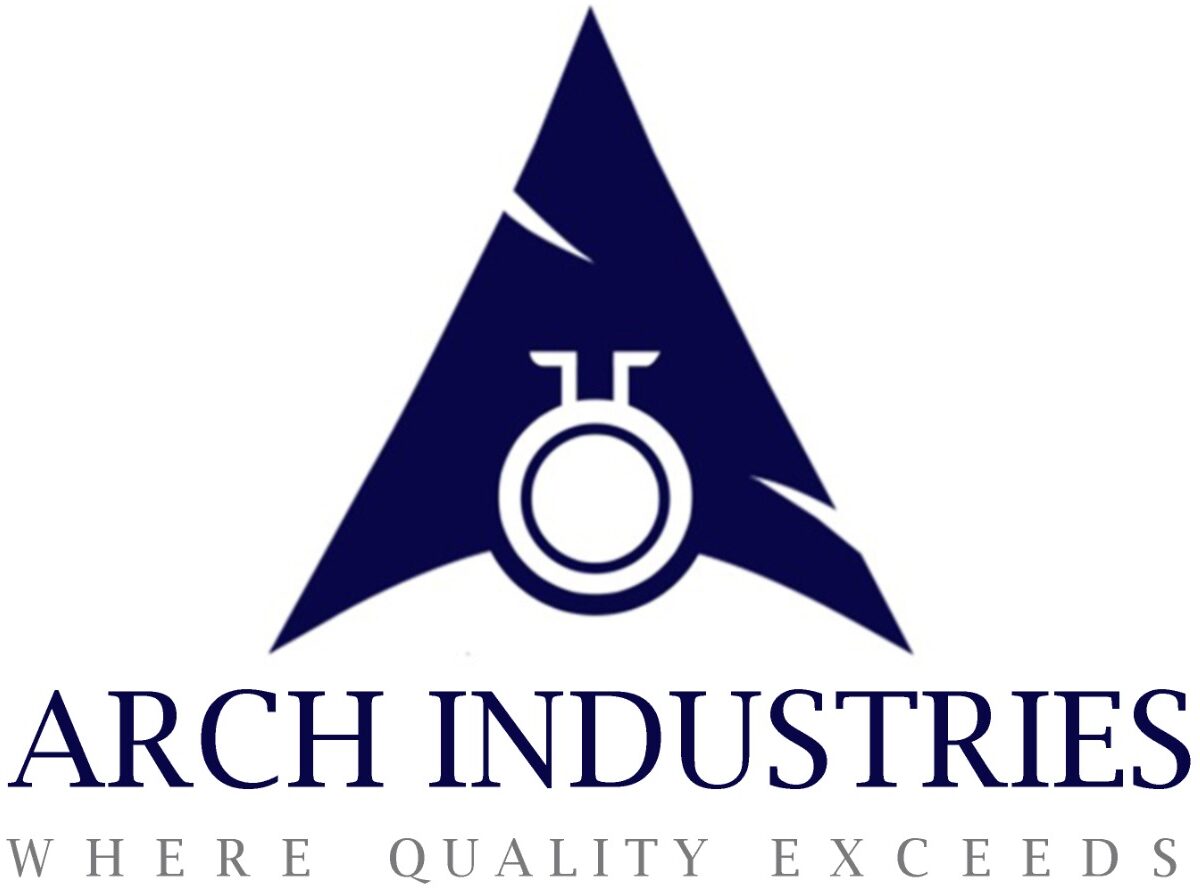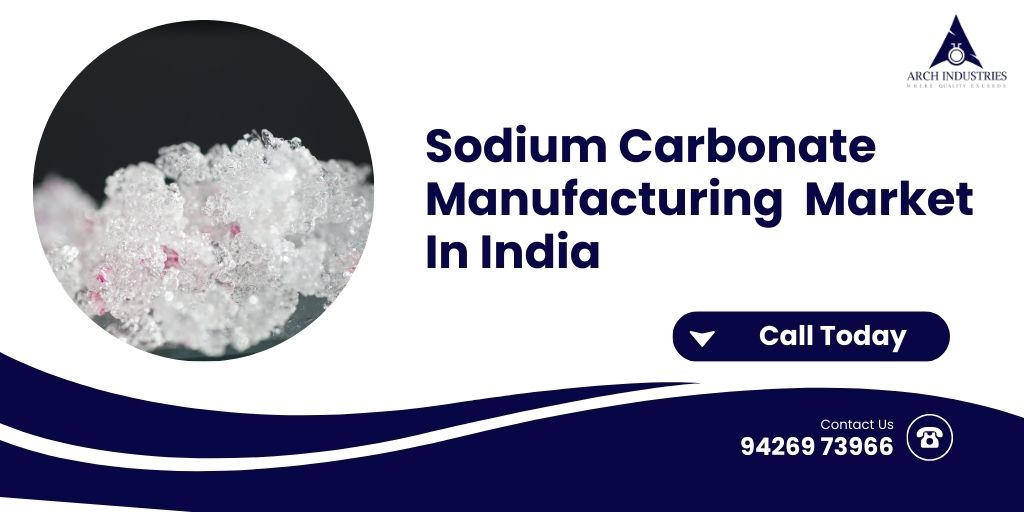The Sodium Carbonate Market in India: Trends, Opportunities, and Key Insights
The Sodium Carbonate Market in India is experiencing significant growth due to its wide-ranging applications across various industries. Sodium carbonate, commonly known as soda ash, is an essential compound in industries such as glass manufacturing, detergents, chemicals, and water treatment. In this blog, we explore the current state of the Sodium Carbonate Market in India, its key drivers, challenges, and future trends.
Sodium Carbonate Market in India: Industry Overview
The Sodium Carbonate Market in India has seen steady growth over the years, primarily driven by increased demand from industries such as glass production, soap manufacturing, and water treatment. In recent years, India has also emerged as one of the leading exporters of soda ash to other countries, further contributing to market growth. According to industry experts, the market is projected to grow at a compound annual growth rate (CAGR) of 5% from 2023 to 2030.
Key Applications Driving Demand for Sodium Carbonate
The primary demand for sodium carbonate comes from industries where it serves as a key raw material. The most prominent applications include:
- Glass Manufacturing: Sodium carbonate is used in the production of glass, including flat glass and container glass. Its demand is directly tied to the construction and automotive sectors.
- Detergent Industry: Soda ash is used as a builder in powdered detergents, enhancing the effectiveness of cleaning agents.
- Water Treatment: Sodium carbonate is used to soften water in industrial and municipal water treatment plants, removing hardness.
- Chemical Production: Sodium carbonate is a base compound used in the production of various chemicals such as sodium bicarbonate and sodium silicate.
Here’s an explanation of how sodium carbonate (also known as soda ash) is used in each of these industries:
1. Glass Manufacturing
In glass manufacturing, sodium carbonate serves as a fluxing agent. It helps lower the melting point of silica (sand), which is the main component of glass. This makes it easier to melt and form the glass at a lower temperature, improving the efficiency of the process. Sodium carbonate is used in the production of various types of glass, including:
- Flat Glass: Used in windows, mirrors, and other architectural applications. The soda ash helps achieve the proper consistency and transparency of the glass.
- Container Glass: Used to make bottles, jars, and other containers. Sodium carbonate enables the glass to be easily molded into different shapes during the manufacturing process.
The demand for sodium carbonate in the glass industry is closely linked to the construction and automotive sectors, as these industries are major consumers of glass products.
2. Detergent Industry
In the detergent industry, sodium carbonate is used as a builder in powdered laundry detergents. A builder is a substance that enhances the effectiveness of the detergent by helping to soften water and activate the surfactants. Specifically, sodium carbonate works in the following ways:
- Water Softening: It neutralizes calcium and magnesium ions in hard water, preventing these ions from interfering with the detergent’s ability to clean. This allows detergents to work more effectively.
- pH Regulation: It helps maintain the pH level of the detergent solution, making the surfactants (cleaning agents) more effective at removing stains and dirt.
Because of its ability to enhance cleaning efficiency, sodium carbonate is widely used in laundry detergents, dishwashing powders, and household cleaners.
3. Water Treatment
In water treatment, sodium carbonate is used for water softening. The process involves removing minerals like calcium and magnesium that cause water hardness. Here’s how it works:
- Water Softening: When added to hard water, sodium carbonate reacts with the calcium and magnesium ions, forming insoluble compounds like calcium carbonate. This process removes the hardness from the water and makes it “softer.”
- pH Adjustment: Sodium carbonate is also used to adjust the pH levels of water in treatment plants, ensuring the water meets the required quality standards for consumption or industrial use.
Sodium carbonate is commonly used in both industrial water treatment (for processes like cooling towers and boilers) and municipal water treatment (for supplying safe drinking water).
4. Chemical Production
Sodium carbonate is a key base compound in the production of several chemicals, including:
- Sodium Bicarbonate (Baking Soda): Sodium carbonate is reacted with carbon dioxide to form sodium bicarbonate, which is used in cooking, cleaning, and in medicinal products.
- Sodium Silicate: Also known as water glass, sodium silicate is produced by reacting sodium carbonate with silica (sand). It is used in various applications, such as in detergents, water treatment, and as a bonding agent in the construction industry.
- Sodium Phosphate: Another chemical produced using sodium carbonate, used in detergents, food processing, and water treatment.
In all these processes, sodium carbonate acts as a source of sodium ions, which are essential for creating the desired chemical reactions.
Daily use of sodium carbonate?
Sodium carbonate, commonly known as soda ash, is widely used in various everyday products and processes. While it is more commonly found in industrial settings, there are several daily uses of sodium carbonate in households and everyday life. Here are some of the primary uses:
1. Household Cleaning
Sodium carbonate is commonly found in household cleaning products such as laundry detergents, dishwashing powders, and multi-surface cleaners. It acts as a water softener and helps boost the cleaning power of soaps and detergents by neutralizing the hardness in water. It also helps break down grease and stains, making it more effective at cleaning.
- Laundry: In laundry detergents, sodium carbonate is used to soften water and remove dirt from clothes more effectively.
- Surface Cleaner: It can be used as an abrasive cleaner to scrub surfaces and remove stains.
2. Water Softening
Sodium carbonate is frequently used to soften hard water, both in household water treatment systems and in larger-scale water supply systems. Hard water contains high levels of calcium and magnesium, which can interfere with soap’s ability to lather. By adding sodium carbonate, these minerals are neutralized, making the water “softer” and improving the effectiveness of soaps and detergents.
3. Food and Cooking
Sodium carbonate is used in food processing and cooking, though it is not as common as other substances like baking soda or sodium bicarbonate. It is sometimes used as an alkalizing agent in certain recipes or in food processing. For example, it is used to:
- Alkalize food: Sodium carbonate is sometimes added in making Chinese noodles to help improve the texture.
- Tanning agent in olives: In some countries, sodium carbonate is used to process olives by soaking them in a solution of water and soda ash to remove bitterness.
4. pH Regulation in Pools
Sodium carbonate is used to adjust the pH of swimming pools. If the pool water is too acidic, adding sodium carbonate helps increase the pH to a neutral or slightly alkaline level. This is important to ensure that the water is comfortable for swimming and that pool equipment doesn’t degrade.
5. Fire Extinguishers
Sodium carbonate is used in some fire extinguishers, particularly those designed for class D fires (fires involving metals like magnesium, sodium, or aluminum). Sodium carbonate helps to smother the fire and prevent it from reigniting.
6. Removing Stains and Odors
Sodium carbonate is effective in removing stains and odors from various surfaces and fabrics. It is commonly used in DIY stain removers or mixed with other cleaning agents to help break down stubborn stains and neutralize odors in fabrics, carpets, and upholstery.
7. Pest Control
Sodium carbonate can also be used in pest control. It is sometimes used in rat poison, where it works by causing the animal to ingest harmful amounts, leading to the death of the rodent.
Where is sodium carbonate mostly used?
Sodium carbonate, also known as soda ash, has a wide range of industrial applications. It is one of the most commonly used chemicals in various sectors due to its versatility and effectiveness. Below are the main industries where sodium carbonate is mostly used:
1. Glass Manufacturing
Sodium carbonate plays a critical role in the glass manufacturing industry. It is used to lower the melting point of sand (silicon dioxide) in the production of glass. The compound helps to produce both flat glass (for windows and mirrors) and container glass (such as bottles and jars). The demand for sodium carbonate in glass manufacturing is closely linked to growth in sectors like construction, automotive, and packaging.
- Flat Glass Production: Used in windows, mirrors, and automotive glass.
- Container Glass Production: Essential for the production of bottles, jars, and other glass containers.
2. Detergent and Cleaning Products
Sodium carbonate is a key ingredient in detergents and cleaning products due to its ability to soften water and enhance the cleaning power of other chemicals. It is commonly used in:
- Laundry Detergents: Helps to break down grease, dirt, and stains.
- Dishwashing Powders: Enhances the effectiveness of cleaning by softening the water.
- All-Purpose Cleaners: Used in a variety of surface cleaning products to remove stains and grease.
3. Water Treatment
Sodium carbonate is widely used in water treatment plants for softening hard water. It helps in removing calcium and magnesium ions, which cause water hardness. Soft water improves the effectiveness of soaps and detergents, and prevents scale buildup in plumbing systems and appliances.
- Municipal Water Treatment: Used to soften water in residential and industrial areas.
- Industrial Water Softening: Helps in maintaining efficient cooling towers, boilers, and other machinery.
4. Chemical Manufacturing
Sodium carbonate is an essential ingredient in the production of a wide range of chemicals. It is used in the synthesis of compounds such as sodium bicarbonate, sodium silicate, and sodium phosphate, which have further applications in various industries.
- Sodium Bicarbonate Production: Used in baking soda, which is widely used in the food industry.
- Sodium Silicate Production: Used in detergents, adhesives, and in the production of catalysts for industrial processes.
5. Textile Industry
In the textile industry, sodium carbonate is used in the processing and dyeing of fabrics. It is used in the process of scouring to clean raw fabrics and remove impurities. Additionally, it helps in the dyeing process by increasing the pH of the dye bath, ensuring better absorption of dyes onto fibers.
- Scouring: Used for cleaning raw fibers.
- Dyeing: Improves dye uptake in cotton and other fabrics.
6. Food Industry
Although not as common, sodium carbonate is used in some food processing applications. It is often used as a pH regulator or an alkalizing agent in specific food products such as Chinese noodles, where it enhances texture. It also helps in the production of tanning agents for olives, which reduce their bitterness.
- Noodle Production: Improves the texture of Chinese noodles.
- Olive Processing: Used in curing olives and reducing bitterness.
7. Pulp and Paper Industry
Sodium carbonate is used in the pulping process in the paper industry. It helps to break down the lignin in wood, which allows the cellulose fibers to be extracted and processed into paper. It is also used in bleaching processes to improve the whiteness of paper.
- Pulping Process: Breaks down lignin and aids in fiber extraction.
- Bleaching: Enhances paper whiteness and quality.
8. Pharmaceuticals
Sodium carbonate is used in the pharmaceutical industry as an excipient and pH adjuster. It is used to regulate the acidity in certain medications, particularly in effervescent tablets and as a buffer in liquid medicines.
- Effervescent Tablets: Acts as a pH regulator and effervescence agent.
- Buffer Solutions: Used in pharmaceutical formulations for pH adjustment.
9. Metallurgy
Sodium carbonate is utilized in metallurgy, particularly in the extraction and refining of various metals. It is used in extraction processes like the solvay process, which is used for producing soda ash and other by-products.
- Extraction of Metals: Used in the production of sodium compounds for metal extraction.
10. Laboratory Use
Sodium carbonate is also used in laboratories for various purposes, including pH regulation, titration, and as a buffering agent in chemical analyses.
Sodium Carbonate Market in India: Current Market Trends
As the Sodium Carbonate Market in India continues to evolve, the following trends have emerged:
- Increased Demand from the Glass Industry: The construction boom in India, coupled with growing automotive production, has significantly increased the demand for sodium carbonate.
- Shift Toward Sustainable Practices: Manufacturers are focusing on producing sodium carbonate through more sustainable methods, such as using natural resources like trona ore.
- Import-Export Growth: India’s strategic position in the global market has led to increased exports of soda ash, benefiting the domestic industry.
Challenges in the Sodium Carbonate Market in India
Despite the growth prospects, there are several challenges the Sodium Carbonate Market in India faces:
- Raw Material Shortages: The availability of raw materials like limestone can be a challenge, affecting the production cost of sodium carbonate.
- Price Volatility: Fluctuations in raw material prices can lead to price instability in the market.
- Environmental Regulations: Stringent environmental regulations may increase the operational costs for manufacturers, particularly in regions with strict emission control policies.
Key Players in the Sodium Carbonate Market in India
The Sodium Carbonate Market in India is highly competitive, with several large players dominating the market. Some of the leading companies include:
- Tata Chemicals Ltd.
- Soda Ash Industries Pvt. Ltd.
- GHCL Ltd.
- Nirma Ltd.
- Rashtriya Chemicals and Fertilizers Ltd.
These companies are continuously innovating to meet the growing demand for sodium carbonate and expanding their manufacturing facilities to stay competitive in the market.
Future Outlook of the Sodium Carbonate Market in India
Looking ahead, the Sodium Carbonate Market in India is expected to maintain steady growth. Key factors influencing the future of the market include:
- Increasing Industrialization: As more industries in India grow, the demand for sodium carbonate will continue to rise.
- Technological Advancements: The development of more efficient production methods for sodium carbonate can help reduce costs and environmental impact.
- Export Growth: India’s position as a leading exporter of sodium carbonate suggests potential for continued growth in international markets.
Sodium Carbonate Market in India: Statistical Insights
| Market Segment | Growth Rate (CAGR) | Market Share |
|---|---|---|
| Glass Manufacturing | 6% | 35% |
| Detergents | 4% | 20% |
| Water Treatment | 5% | 15% |
| Chemical Production | 5% | 10% |
| Other Industries | 3% | 20% |
Conclusion
The Sodium Carbonate Market in India is poised for steady growth, driven by increasing demand from industries such as glass production, detergent manufacturing, and water treatment. While challenges like raw material shortages and price volatility remain, the future of the market looks promising due to advancements in technology and a growing export market. With key players continuing to innovate, the industry is set to play a crucial part in India’s industrial growth.
FAQs
1. What is driving the growth of the Sodium Carbonate Market in India?
The growth of the Sodium Carbonate Market in India is primarily driven by the increasing demand in key industries such as glass manufacturing, detergents, and water treatment. The glass industry, which uses sodium carbonate in large quantities for production, plays a significant role. Additionally, the rise in consumer demand for cleaning products, especially in the detergent industry, has contributed to the market’s expansion. Furthermore, increased export opportunities, particularly in Southeast Asia and the Middle East, are fueling demand and creating a positive outlook for the Sodium Carbonate Market in India.
2. What are the primary applications of Sodium Carbonate?
Sodium carbonate, commonly known as soda ash, has several crucial applications across various industries. In the glass manufacturing sector, it is used to lower the melting point of silica, making the production of glass more efficient. It is also a key component in powdered detergents, where it works as a builder to enhance cleaning efficiency. In water treatment, sodium carbonate is used to soften water by removing hardness-causing minerals. Moreover, it plays a role in the chemical production of compounds like sodium bicarbonate and sodium silicate, which have further industrial uses.
3. Who are the key players in the Sodium Carbonate Market in India?
India’s Sodium Carbonate Market is dominated by major players like Tata Chemicals Ltd., GHCL Ltd., and Nirma Ltd. These companies are leading the market due to their strong production capabilities and extensive distribution networks. Tata Chemicals, with its large-scale production and research-driven approach, is one of the pioneers in the market. GHCL is another key player, known for its significant share in the soda ash production market. Nirma, with its robust presence in the detergent sector, continues to drive demand for sodium carbonate in India, making these companies essential contributors to the market’s growth.
4. How does environmental regulation affect the Sodium Carbonate industry in India?
Environmental regulations in India are having a profound impact on the Sodium Carbonate industry. To comply with these regulations, manufacturers are investing heavily in eco-friendly technologies and processes that reduce emissions and improve waste management. While these efforts lead to higher production costs, they also ensure sustainable manufacturing practices. Companies are focusing on improving energy efficiency and reducing carbon footprints. The shift towards cleaner production methods not only helps meet regulatory requirements but also enhances the industry’s long-term viability by aligning with global sustainability trends and consumer preferences for environmentally responsible products.
5. What is the future outlook of the Sodium Carbonate Market in India?
The future outlook of the Sodium Carbonate Market in India is highly promising. The demand for sodium carbonate is expected to grow significantly, driven by sectors such as glass manufacturing, detergents, and water treatment. Innovations in glass production and an increasing focus on water treatment technologies will continue to boost market growth. Moreover, as industries expand and global demand for sodium carbonate rises, Indian manufacturers are likely to benefit from increasing export opportunities. The government’s push for industrial growth and sustainability will further contribute to a positive growth trajectory for the Sodium Carbonate Market in India.


